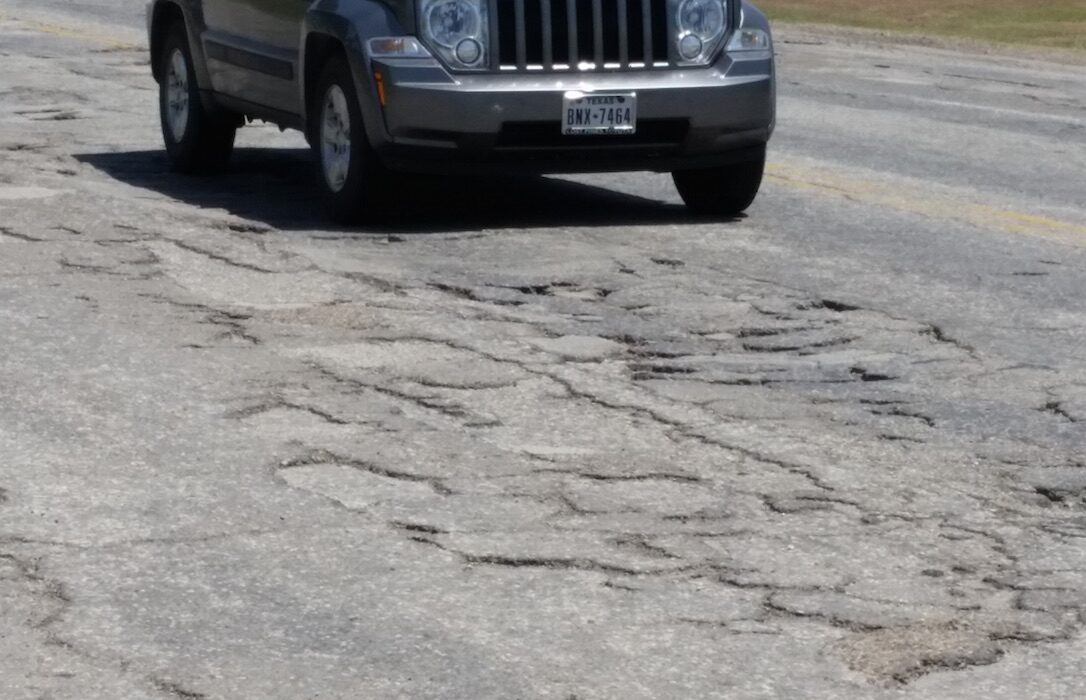
City streets will soon undergo a $61 million facelift after voters approved the 2020 bond program. Staff photo
Voters will decide on two propositions November 8 aimed at improving the condition of residential streets. Corpus Christi city council members turned down a proposed increase in garbage collection fees in favor of putting an $18.35 million bond proposal before voters. A second proposition amends the city’s charter to create a residential street reconstruction fund using dedicated property taxes of no more than 2 cents per $100 property value per year for no more than three years.
Approving the $18.34 million bond will not raise property taxes because the amount falls within the city’s debt capacity, staffers explained at a meeting Tuesday, August 16. Debt capacity is the amount a city can issue in bonds without triggering an increase in property taxes to pay for it. The city’s debt ceiling, which was at $60 million last year, is now at about $30 million.
“We can’t continue to use our debt capacity as a revenue stream,” said council member Colleen McIntyre, opening up a three-hour discussion of fees versus bond money to provide a revenue stream for improving residential streets. The council also engaged in a feisty back and forth about a council commitment made in previous years to issue $55 million in bonds every two years for arterial and collector streets.
“I think doing this kicks the can down the road on arterials and collectors,” said council member Mark Scott. “Spending this money on something else kicks the can down the road.”
During the next hour or so, council kicked numbers around as they debated what to put in the bond issue, what to take out and how much each item was worth. The final figure, coming below the bond capacity, was $18.35 million. Of that, $11 million would go into a residential rebuild program that is estimated to cost almost $1 billion to upgrade all roads. The back and forth included emotional pitches for street lighting around university housing and pleas by the mayor to take the next year to better plan a residential street program since the work can't start until late 2017 or 2018 anyway.
“I think this bond proposal just let out a can of worms,” said council member Carolyn Vaughn. After a motion made by council member Chad Magill, the issue was approved by a 6-3 vote, with Scott, McIntyre and Martinez voting no.
Scott called the second proposition to set up a residential reconstruction fund with property tax money a “second-best alternative.” He supported an increase in garbage collection fees, as did McIntyre and Martinez, which was voted down earlier in the meeting. The council voted 6-2 to put the issue before voters, with several council members voicing concern that having two bond issues for streets will be confusing for voters.
“I don’t want to NOT provide some opportunity for the community or us to improve residential streets,” Scott said. “It’s the citizens’ vote. If they don’t want it, they’ll vote it down. If they do, they vote for it. That’s why I’m willing to put it on the ballot. At least we’ll finish the day by providing a tool for the public’s decision to move forward.”
The $18.35 million bond issue will not trigger a tax increase because it falls within the city's current debt capacity. The proposition to set up a residential reconstruction fund with a dedicated revenue stream would be funded by an increase in ad valorem taxes that would have to be approved 2 cents at a time by voters every year for three years.





